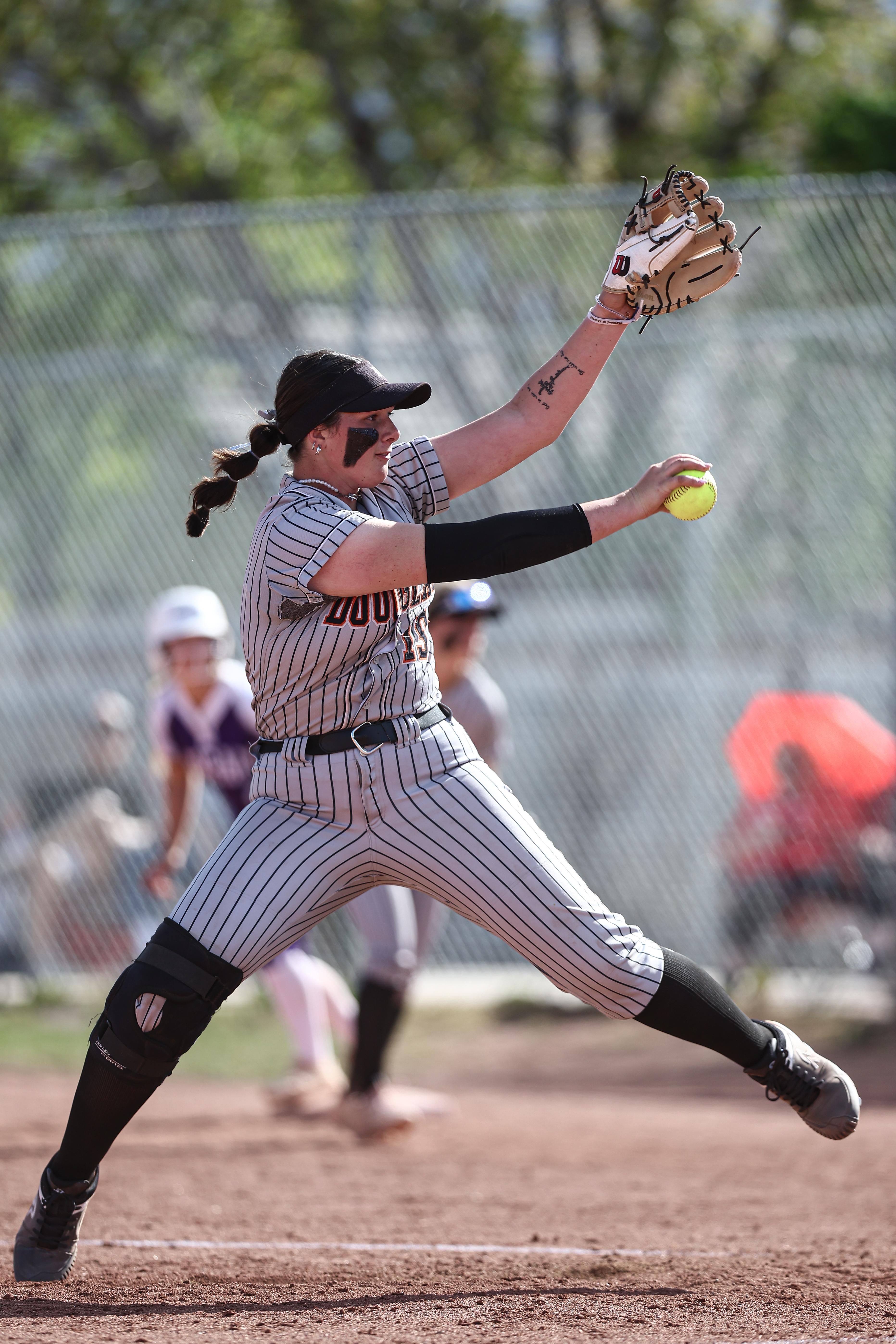Review of Season 2, Episode 2 of “House of the Dragon”: The Cost of War

In “House of the Dragon” time no longer jumps forward.
Just as episode 1 of season 2 picked up no more than a day or two after the end of season 1, only a few hours pass between episodes 201 and 202. Written by Ryan Condal and directed by Claire Kilner, the 72-minute episode is the longest of the series to date, showing the aftermath of the Targaryen civil war following the death of young Jaehaerys, but also the impact it has on those not of royal blood.
The quiet, panicked opening sequence shows servants and common people fleeing in panic, just as civilians would flee an unsafe public space even in our world; something bad has happened, something we must get away from – the camerawork and a jumpy but fitting score by Ramin Djawadi convey how the environment itself changes when tragedies like this happen. Djawadi’s most famous work is usually melodically memorable and easy to hum (like the show’s theme), but here he shows his range with an eerie solo violin and a melody that couldn’t be harder to play.
In IndieWire’s review of Season 2 (at least the four episodes that critics screened before release), Ben Travers pointed out that “Alicent (Olivia Cooke) is left with the ‘What have I done?’ story arc,” which here is the continuation of Episode 1. Although The While the murder of children isn’t indirectly her fault, nor was it caused by her children, she and the rest of the Greens quickly recognize the act of vengeance set in motion with “A Son for a Son,” the dominoes knocked down by Aemond (Ewan Mitchell) that escalated this war to a whole new level (all she wanted was Luke’s eye). The “What Have I Done” arc hasn’t gotten stale as of Episode 2, and Cooke is excellent, especially in her first scene, where shock and grief intertwine. Every gasp, choke, and sob lifts the dialogue and emotion at just the right moment; the anguish inherent in “The gods punish us. They punish me,” and the way she breaks down at the mere thought of her daughter Helaena (Phia Saban) experiencing the loss of a child.
No matter which team the characters or viewers root for, this episode and the story at large doesn’t work if you don’t have sympathy for Helaena and Aegon (Tom Glynn-Carney). Saban and Glynn-Carney deliver two outstanding performances, each with a unique and different approach to their characters’ torment and how to even begin to move forward. While Aegon screams in anger, throws furniture and accuses his council of negligence (not to mention executing all the Pied Pipers in the Red Keep, congratulations to the rats), Helaena cries, is silent and withdrawn. Her despair at the funeral fits with all the choices Saban has made so far, so much so that a woman who prefers privacy and seclusion would recoil from the opposite – especially while sitting in a carriage behind her son’s decapitated body.
Both the small council scene and the procession scenes underscore the strangeness of war, as the blame for Jaehaerys’ death is placed on Rhaenyra (Emma D’Arcy). It doesn’t matter that “the boy” (as he is strategically called when people supposedly can’t pronounce his name) was killed by a Goldcloak assassin; nor does it matter that Daemon (Matt Smith) instigated this crime in the first place, or that Mysaria (Sonoya Mizuno) pointed him in the right direction. What matters is whose banner these people would fly and which ruler they would support on the throne: Rhaenyra. In contrast, the blame for Lucerys’ death falls largely on Aemond or his dragon Vhagar, rather than Aegon—perhaps another way in which Westeros’ patriarchy is not so dissimilar to our own.

But no matter how much hate and abuse they throw at her from King’s Landing, Rhaenyra knows the truth, and her doubts about Daemon lead to an electrifying scene between D’Arcy and Smith (if you slow down and watch backwards, you’ll hear “WHERE ARE MY EMMYS” on a loop). It helps that the show’s leads are two of the best actors in a supremely talented group, but this is one of those scenes that sets “House of the Dragon” apart from “Game of Thrones” through script alone. The conversation flows naturally, the language fits the show’s universe, and the actual content of what they’re saying is deeply engaging and drives the show’s narrative forward. Daemon’s dialogue and body language accurately capture each person who is too stubborn to admit their true feelings or that they were wrong about something. Kilner keeps the actors and camera moving organically, tracking how the relationship itself changes in the space of a few minutes. Up until now, at least throughout their marriage, Rhaenyra and Daemon have been a unit, no matter what other people say about one or both of them behind their backs. This is where those cracks open up, splitting an already divided house.
The brief brothel scene with Aemond has two critical moments; first, his admission of guilt over “that thing with Luke,” which is about the least enthusiastic statement of regret imaginable (nor an apology), and doesn’t carry much weight when uttered behind closed doors to a stranger. It’s for the audience, and part of the show’s ongoing campaign to humanize occasionally monstrous individuals (Aegon, Daemon), but such is the game of thrones and all.
The second important insight is what his companion says, although Aemond himself may not be receptive to it: “When princes lose their temper, it is often others who suffer – little people like me,” she says. Daemon lost his temper and carried out a half-hearted plan of revenge that resulted in the killing of a child; Aegon lost his temper and ordered the deaths of the men in his service, men with women and children who then felt Aegon’s own pain.
And then there are the soldiers who lose the most, even if it is what they promised. The climax of episode 202 is the reunion, battle and downfall of the knights Arryk (Luke Tittensor) and Erryk (Elliot Tittensor) Cargyll. On the bombastic orders of Ser Bad loser Criston Cole, Arryk is sent to Dragonstone with the mission of killing Rhaenyra while pretending to be his brother. On the surface, this plan is completely silly – Otto (Rhys Ifans) even calls it a “prank” – but for Arryk, surrounded by enemies, it couldn’t be more dangerous. It’s left unsaid, but this isn’t a mission he’d likely have returned from even if he’d succeeded.
It’s a brutal fight, staged with the same dynamics as Rhaenyra and Daemon’s earlier tussle. Punches, kicks, and other hand-to-hand combat interrupt the swordplay, with D’Arcy caught in the middle (which seems a little futile, even if they continue to act with full vigor). The twins’ cries of pain are both physical pain and emotional turmoil, knowing above all else present that this is definitely the end. It’s a great send-off for the Tittensor brothers, a final scene as memorable and impactful as a main character could hope for, and one that shows once again how many lives are lost in a dance of dragons.
The weakest part of the episode – and the only time I really felt its runtime – is the final scene with Alicent and Cole. Their pairing is not in Fire & Blood and is a bit off-putting, even if that’s the way it’s meant to be. Alicent having an affair with Rhaenyra’s old lover is a bit superficial in terms of additional backstory, but it’s also not meant to elicit empathy or sympathy from viewers. There’s no absolution for any of these people, as Cole himself says in episode 2 – but to that extent, there’s no added value in watching them make the same bad decisions over and over again, least of all if it’s just to keep sex in the show when it’s otherwise compelling enough. I (and the gods) will reserve judgment for now and watch the relationship develop. But please, lock the door this time.





